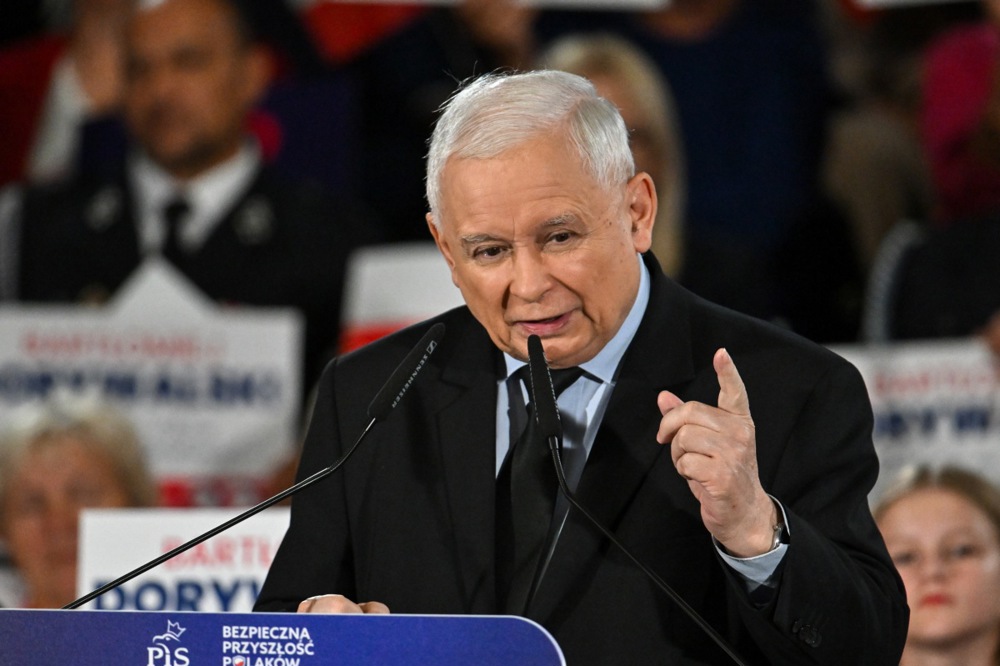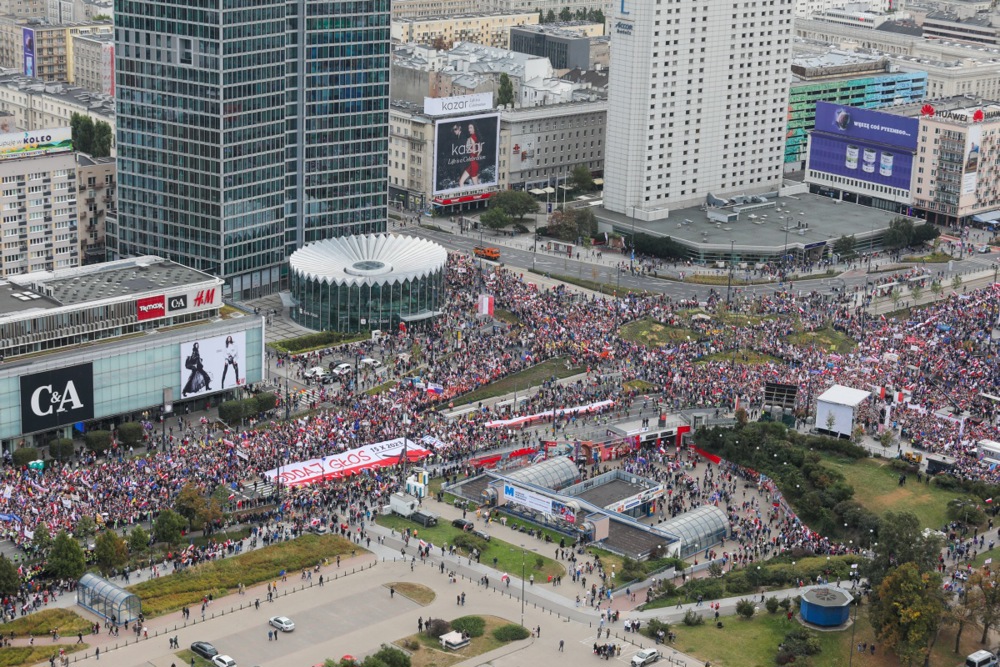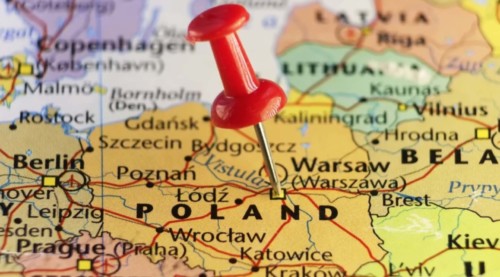A hung parliament is the most likely outcome of Poland’s October 15 election, indicating a weak minority government or a second vote, analysts have told Brussels Signal.
“Neither party looks set to win an outright majority, making coalition-building key after the election,” US business data agency Morning Consult’s deputy head of political intelligence, Sonnet Frisbie, told Brussels Signal.
That is despite Poland’s governing PiS (Law and Justice) appearing to enjoy a comfortable margin over the Donald Tusk-led opposition KO (Civic Coalition). PiS is polling between 35 and 39 per cent while the KO has 27-32 per cent.
The key variables lie in smaller coalitions, in particular Third Way (TD, polling 9-12 per cent) The Left party (8-10 per cent), and Confederation (KON, around 8-11 per cent).
Third Way, an electoral coalition of two centrist parties (PSL and Poland 2050), therefore requires 8 per cent of the vote to gain representation in the 460-seat Lower House (Sejm). The Confederation and The Left parties only need to cross the 5 per cent electoral threshold set for single parties to do the same.
On the Right, the nationalist Konfederacja party “could play kingmaker or spoiler if its overwhelmingly young, male voters turn out on election day”, said Frisbie, a former US diplomat.
A strong Konfederacja showing, coupled with Third Way and New Left gaining seats, would mean a weak minority PiS government propped up by Konfederacja, she said.
Teneo analyst Andrius Tursa said Confederation was “unlikely to enter into formal coalition agreement with either side”.
This hung parliament scenario has a “40 per cent probability”, Tursa said. In such, there would be “protracted talks on government formation”, with “major policy shifts unlikely”, and a “period of chaotic governance”.
Oxford Analytica’s Michael Taylor said it seems Third Way will be able to meet the 8 per cent threshold. Still, its voter support is considered vulnerable and should it fall short this “might swell the PiS seats tally enough for it to govern alone”. That would save it from having to rely on Confederation support.
If Third Way “fails to enter, Law and Justice [PiS] with a 37 per cent result could scrape to a majority of seats in the Lower House”, agreed University of Warsaw professor Maciej Bernat.
Warsaw lawyer Maja Mazurkiewicz pointed out Poland’s electoral system makes predicting post-election governments especially difficult.
“With the d’Hondt system, if one opposition party is out of the parliament, its votes are allocated to the winner,” she said. The d’Hondt method is a mathematical formula used widely in proportional representation systems.
An unprecedented third term in office for Jarosław Kaczyński’s PiS had a “30 per cent probability”, added Tursa.
Vital in the scenario of PiS staying in power was Confederation’s declining poll numbers. After polling as high as 14 per cent over the summer, they now hover around 10 per cent.
If Confederation performed poorly among its young, male base, this “might encourage some of its deputies to support or even join” PiS, giving the current ruling party an unprecedented third term of majority rule, the analysts said.
“Even a few deputies switching sides could make a difference,” said Tursa.
A KO government, led by former European Council president Tusk, also has a 30 per cent probability, according to Tursa.
If The Left and Third Way “score a good result (let’s say 10-12 per cent each) and Civic Platform perform well (let’s say 30-32 per cent), then an opposition government will be possible”, agreed Bernat.
Such a government would be constrained by the power of veto of the PiS-backed President Andrzej Duda, whose term of office expires in the summer of 2025. Its economic plans could be undermined by the PiS-appointed head of the central bank, Adam Glapiński.
In the last days of campaigning, the PiS is arguing that a government of the opposition parties would be “a coalition of chaos”, producing weak government at a time of international crisis.





